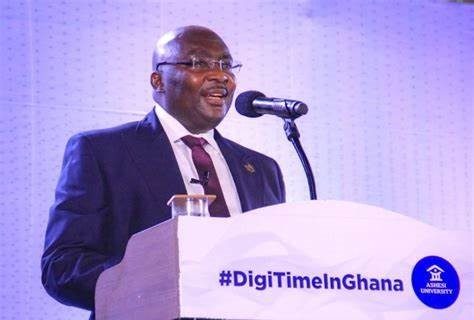Vice President Dr. Mahamudu Bawumia has launched the National E-Health Project to modernize Ghana’s healthcare system by moving patient records from paper-based to digital formats. This innovative digital health solution, developed by the Lightwave Health Information Management System (LHIMS) and the Ministry of Health, is the first of its kind in Africa, emphasizing security, reliability, and accessibility.
The E-Health project creates an integrated electronic medical record and patient management system, which includes protocols from Ghana’s Disease Surveillance Unit. Through this initiative, patient records at all teaching, regional, and district hospitals have been digitized and interconnected, allowing seamless electronic access to patient information across facilities. This will eliminate the need for patients to transport physical records when moving between hospitals, regardless of location.
Dr. Bawumia emphasized that the fourth industrial revolution has spurred advancements across sectors, including healthcare. He noted that the digitalization agenda spearheaded by the New Patriotic Party (NPP) government is transforming Ghana’s healthcare, bridging the digital gap in developing nations. “The government’s resolve has enabled me to initiate several digital projects aimed at enhancing service delivery, increasing revenue mobilization, combating corruption, and promoting financial inclusion,” he stated, referencing initiatives like the Ghana Card, digital address system, Ghana Post GPS, and mobile money interoperability.
Dr. Bawumia outlined further innovations within Ghana’s healthcare sector, such as the Ghana Card at Birth, national e-pharmacy platform, digital NHIS renewal system, Zipline medical delivery drones, and the LHIMS platform as part of the National E-Health Project. He noted that the previous healthcare challenges—limited access to health records, inefficient data transfer, manual health insurance claims, and fragmented information—are now being addressed by LHIMS, which has enhanced Ghana’s healthcare delivery over the past six years.
Since the LHIMS pilot in 2017, over 481 facilities nationwide, including teaching, regional, district, polyclinic, and psychiatric hospitals, have adopted the system. With deployment ongoing across over 1,000 health centers, the project now covers six teaching hospitals, 10 regional hospitals, 243 district hospitals, three psychiatric hospitals, and 50 polyclinics, extending digital health services to over 21 million Ghanaians.
The system has streamlined patient care, improved record accuracy, and expedited NHIS claim submissions, while reducing wait times and enhancing access to epidemic data for early disease outbreak detection. Dr. Bawumia expressed confidence that LHIMS would lay a foundation for telemedicine, potentially reducing healthcare costs significantly.
Health Minister Dr. Bernard Okoe-Boye commended the project’s clinical, operational, and economic benefits, while LHIMS Project Manager Eric Agyei highlighted the system’s role in positioning Ghana as a leader in healthcare innovation, working closely with the Ministry of Health to build a lasting digital transformation in Ghana’s healthcare system.
